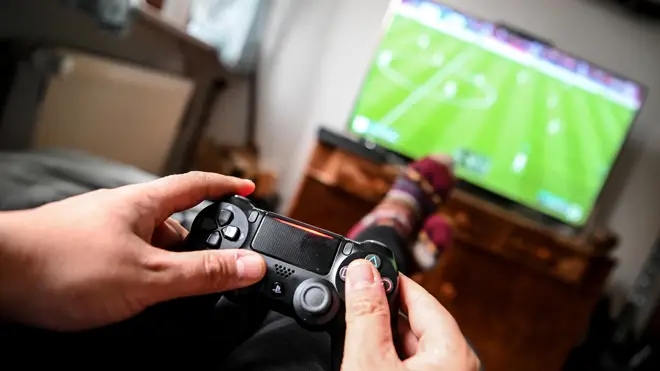
Iain Dale 7pm - 10pm
29 January 2021, 06:18

People are spending more time watching TV and gaming, exercising less and are more unhappy in this lockdown compared to the first, research suggests.
According to a study by University College London (UCL), four in 10 people said they are exercising less. However 13 per cent said they were doing more exercise.
Nearly a fifth of people (19%) said they were watching television, streaming films and gaming more, with 13% saying they were doing so less than before.
READ MORE: Novavax Covid vaccine proves 89% effective in trials
A third (34%) say they are working more, while people are spending less time on hobbies such as arts and crafts, gardening and DIY, and volunteering.
UCL's Covid-19 Social Study, funded by the Nuffield Foundation, is the UK's largest study into how adults are feeling during lockdown.

PM to set out roadmap out of lockdown in February
More than 70,000 people have been questioned weekly over the past 44 weeks.
The research shows levels of happiness and life satisfaction have decreased alongside these behaviour changes.
Average happiness scores are lower during this lockdown than those reported during April 2020, and life satisfaction scores are at a similar level.
Almost half (45%) of people are now worried about catching or becoming seriously ill from Covid-19 - the highest level since the middle of the first lockdown back in April.
Lead author, Dr Daisy Fancourt, from UCL's Institute of Epidemiology and Health Care, said the drop in exercise is concerning but not surprising, given the current lockdown is taking place in winter.
She said: "The reduction in time spent on hobbies and volunteering can partially be explained by the increased time spent working, but also hints that the novelty of increased free time that came with the first lockdown has worn thin among much of the population, with many turning towards television and gaming to fill their time.
"This is further reflected in the lower levels of happiness during the current lockdown, another sign that many people are finding this lockdown much tougher than the first and are now more focussed on coping with their current circumstances, rather than attempting to find ways to enjoy them."
The survey found just 25% of people said their lives feel the same as during the first lockdown.
Cheryl Lloyd, education programme head at the Nuffield Foundation, said: "This week's findings highlight the mental health impact of the current Covid-19 lockdown with people reporting worsening levels of depression and anxiety, along with lower levels of life satisfaction.
"Some groups are more at risk than others including women, those on lower incomes and people from ethnic minority backgrounds.
"With lockdown set to continue for the foreseeable future, it is crucial that efforts are made to ensure people know how to access mental health support and that this support is available to those who need it."